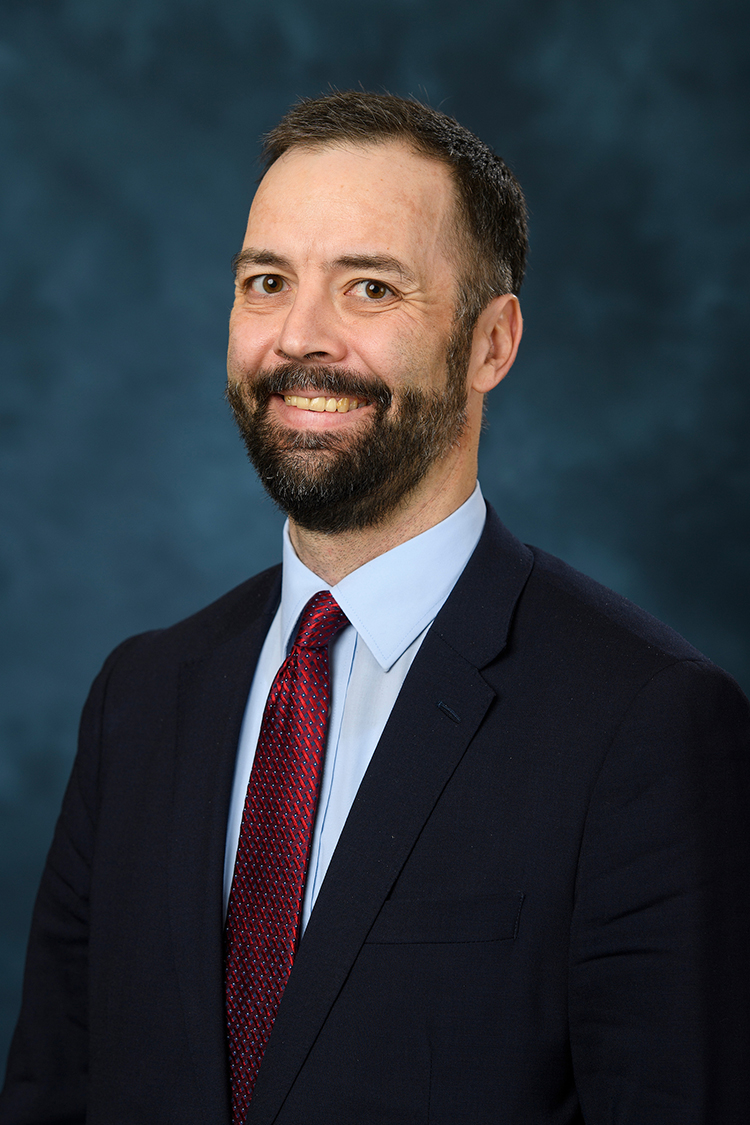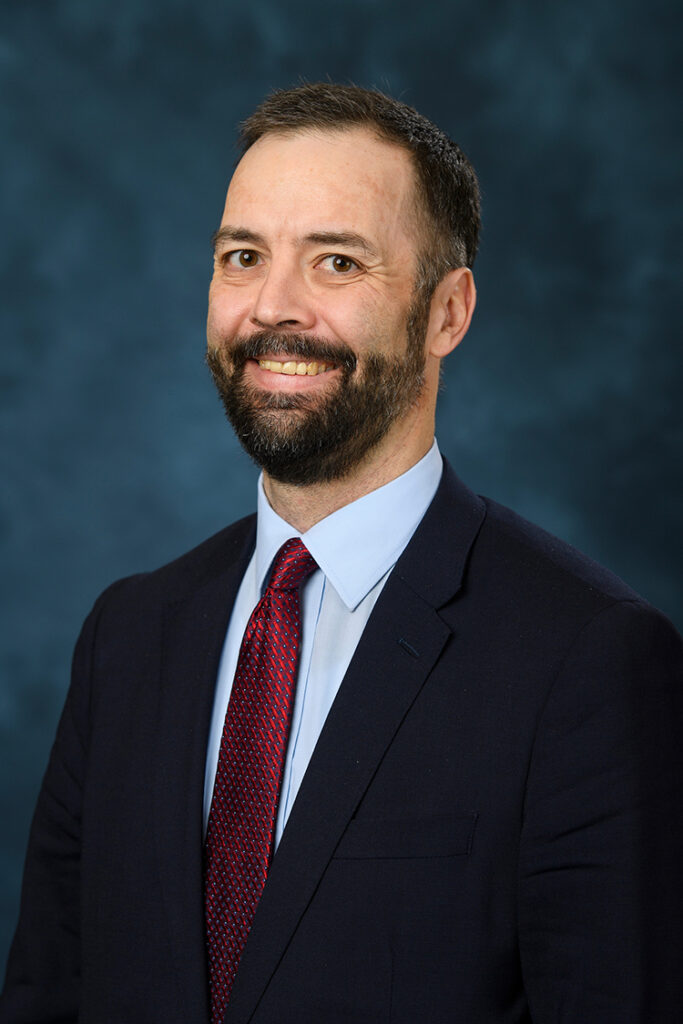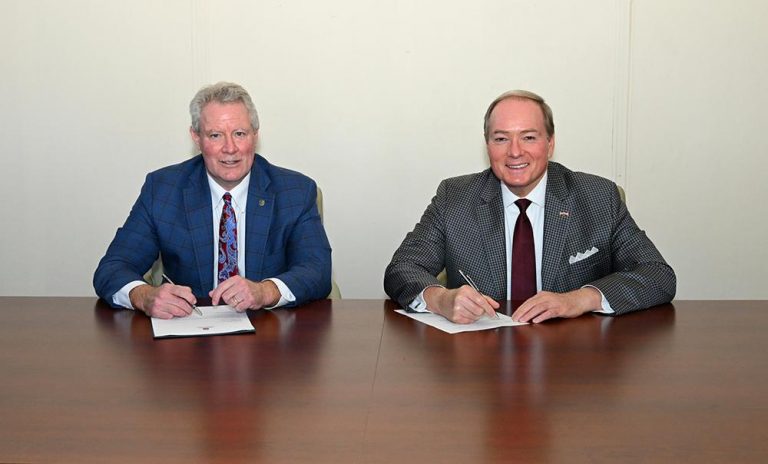
Chris Green. Photo by Thomas Graning/Ole Miss Digital Imaging Services
Supreme Court to hear First Amendment cases regarding public official’s use of social media
The U.S. Supreme Court will take up two cases Tuesday, October 31, 2023, to answer a new question regarding Americans‘ First Amendment rights: Can elected officials block their constituents on social media?
The issue at hand is whether the elected officials in Lindke v. Freed and O’Connor-Ratcliff v. Garnier were acting as public servants or merely as themselves in their online presences, said Chris Green, University of Mississippi law professor and Jamie L. Whitten Chair of Law and Government.
“There are a bunch of fascinating issues about the boundary of the state,” Green said. “Where does the government official end and people’s private lives begin?”
In Lindke v. Freed, a city manager in Port Huron, Michigan, blocked a resident and deleted their critical comments from his Facebook page. The 6th Circuit Court of Appeals ruled that did not violate the resident’s First Amendment rights.
However, in O’Connor-Ratcliff v. Garnier, the 9th Circuit Court of Appeals ruled that two California school board members may have violated First Amendment rights when they blocked two parents after they posted critical comments.
It is the difference of circuit court opinion between the two similar cases that brought this issue to the Supreme Court, Green said.
“Because they took both cases, (the Supreme Court isn’t) likely to reverse both of them, but it is possible they could come up with a third way to solve this,” the Ole Miss law professor said. “It’s the kind of problem you’ve had for centuries, where you have individual people with more than one hat.
“Here, it’s just very, very easy to manufacture a new hat.”
The cases bear resemblance to a lawsuit regarding former U.S. President Donald Trump‘s social media account, where the president had blocked several people who criticized him. The Supreme Court tossed that suit, though it had succeeded in lower courts, on the basis that Trump was no longer president.
The primary concern of the upcoming cases is determining whether the city manager and school board members were acting in their public official roles on their social media accounts, Green said.
The school board members created personal, public Facebook and X, formerly known as Twitter, accounts before they were elected that they used for campaign purposes, to address public issues and for official business.
Freed made his Facebook page while in college and used it primarily for personal reasons, though he did post public news and official business after he became city manager, court documents said. When he hit the 5,000 “friend” limit on Facebook, he converted his profile to a page, which cannot be made private.
“If they’re wearing a governmental hat, there are a bunch of rules they need to have about treating everybody equally,” Green said. “They can’t just say, ‘You’re being annoying. I’ll block you on Facebook.’
“If you’re acting as a government officer, mere annoyance isn’t enough. You have to behave even-handedly because of the First Amendment.”
Still, it is unlikely that the Supreme Court will make a blanket ruling that all social media pages of public officials are inherently places of government business, Green said.
“The Supreme Court isn’t going to adopt a rule that says, ‘When in doubt, you’re acting as the government,'” he said. “But it’s hard to tell what they will do, because it’s such a new issue.”
By Clara Turnage




